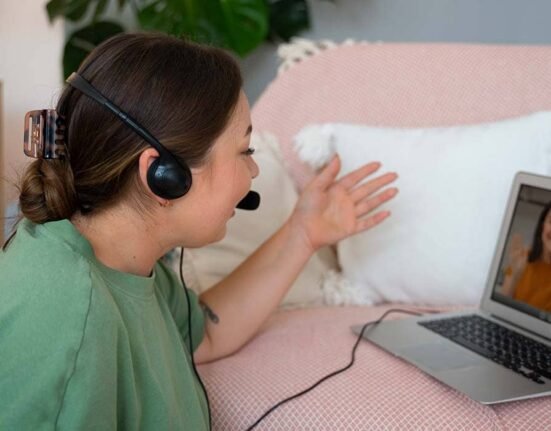Nowadays it is very common to find people turning to this activity of shopping whenever they seem to have imbalances in their mood states. These imbalances can be both positive and negative. We live in a world that is extremely fast-paced and though it has its own share of ups and down. One good thing is also the variety that exists. there is a huge variety of things that can be brought and sold in the markets in today’s time, which was not really the case even a decade ago. The fast availability a variety of goods makes it even more exciting for people to turn to shop.
Shopping is no longer just a necessity. Over time the activity of shopping has evolved into a therapeutic activity for many individuals across the globe. This is mostly seen as their attempt at seeking a temporary escape from their daily routines or in order to suppress certain emotions and feelings both negative or positive. Known as retail therapy, this practice involves engaging in shopping experiences with the aim of improving one’s mood. While some may view retail therapy as mere frivolity. Research suggests that it can indeed have positive effects on the emotional well-being of those involved.
Is It Okay For You To Engage In Retail Therapy?
Yes. Yes, it is okay for you to engage in retail therapy, however, one must also keep in mind their financial and economic standing and make sure to not blow off their hard-earned (or their parent’s) money on something futile.
There are various positives and negatives that come along with retail therapy. There are some things that need to kept in mind at all times when one is engaging in or is in close contact or relationship with someone who engages in retail therapy.
Financial Considerations and Moderation
While retail therapy can provide mood-boosting benefits, it is important to also address the financial implications that come along with it and also to practice moderation in consumption. Engaging in retail therapy without considering the financial implications can lead to stress and negative emotions in the long run. It is important for individuals to establish a budget and be mindful of their financial situation. By setting limits and being aware of their spending habits, individuals can enjoy the benefits of retail therapy without jeopardizing their financial well-being.
There are many people around the globe who can engage in large amounts of expenditure on materials like clothes or some ridiculous-looking cup. However, not everyone has the privilege to do the same. There may be times when you are with a group of people for whom retail therapy works mostly because they can afford it. There may be times you are in such company, but you may either not relate or may not be able to afford such a lifestyle. That is okay. It is okay for you to not engage in retail therapy if it is not a lifestyle you are able to sustain. However, there are many individuals who, despite not being able to sustain that lifestyle, tend to engage in retail therapy a lot .
Retail therapy should not be relied upon as the sole means of improving mood states. It is important to develop a range of coping mechanisms and alternative strategies for emotional regulation. Engaging in activities such as exercise, meditation, spending time in nature, or pursuing hobbies can provide sustainable and healthier ways to boost mood and overall well-being
Personality Positives
There are various ways that retail therapy helps in improving and enhancing the mood states of the individuals involved. One of the various ways in which retail or shopping therapy enhances mood states is by providing a temporary distraction from everyday stressors. When individuals immerse themselves in the act of shopping, their attention shifts away from problems and responsibilities, allowing them to experience a sense of relief. The act of shopping also involves visiting new environments, such as malls, boutiques, or online platforms. The visual appeal of various products, the aroma of new fragrances, and the ambient sounds of bustling shopping centres can create a pleasant and engaging experience. This exposure to new and stimulating environments contributes to a sense of excitement, elevating mood states.

During shopping therapy, individuals get the opportunity to focus their attention on their personal desires. By exploring different items, comparing options, and imagining themselves owning or using these products, they engage in positive anticipation and create a sense of personal fulfillment. This process allows them to indulge in self-reflection and envision a more satisfying future.
Which can have a positive impact on their emotional well-being. Retail therapy can also boost mood states by enhancing self-esteem and feelings of empowerment. The act of shopping provides individuals with a sense of control and autonomy over their choices and preferences. This empowerment can translate into improved self-confidence and a more positive outlook on life.
The act of purchasing desired items can also evoke a sense of accomplishment. Whether it’s acquiring a long-awaited item or finding the perfect piece of clothing. The feeling of achievement can significantly elevate mood states. The sense of accomplishment derived from successful shopping experiences reinforces a positive self-image and increases self-esteem. Shopping allows individuals to express their personal style and preferences. The ability to curate one’s surroundings and appearance through shopping enables individuals to project a positive self-image, which contributes to overall well-being.
Social Positives
Another key aspect of retail therapy is the potential for social interaction and connection. Shopping experiences often involve interacting with sales associates, friends, or family members, which can provide a social outlet and foster a sense of connection with others. These social interactions can have a profound impact on mood and emotional well-being. Shopping with friends or loved ones offers an opportunity for shared experiences and bonding. Engaging in retail therapy together can strengthen relationships, deepen connections, and create lasting memories. The joy of discovering new products, offering opinions and advice, and enjoying the company of others can contribute to a sense of happiness and fulfilment. These shared experiences during retail therapy can uplift mood states and provide a sense of belonging and support.
Engaging in shopping therapy also tends to often involves receiving positive social feedback. Compliments from friends, sales associates, or even strangers on chosen items can boost self-confidence and generate feelings of validation. This positive reinforcement can have a significant impact on mood, promoting a sense of happiness and well-being. Many retail spaces are designed to create a positive and inviting atmosphere. From pleasant lighting and appealing displays to friendly staff, these environments aim to make customers feel comfortable and valued. The welcoming ambiance and attentive service contribute to a positive shopping experience. Which can have a direct impact on mood states. Feeling supported and cared for during retail therapy can enhance feelings of happiness and contentment.
Social Connections and Retail Therapy
Although retail therapy is often criticized as a frivolous and materialistic pursuit. Research suggests that it can have significant positive effects on mood states. Retail therapy, when approached mindfully and in moderation, has the potential to boost mood states and contribute to overall well-being. By providing distraction from everyday stressors, enhancing self-esteem and empowerment, facilitating social interaction, and triggering the release of neurotransmitters, shopping therapy can uplift mood. Additionally, it offers personalized experiences and self-care opportunities, creating a sense of happiness and fulfillment.













Leave feedback about this